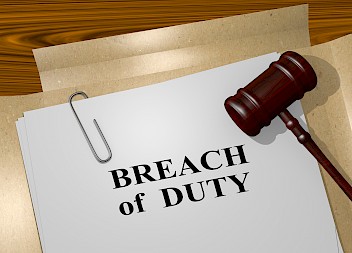Did you know that in the UK (but not Wales) there is now a statutory duty for care provider to tell you the truth when things go wrong? It’s called the ‘Duty of Candour’.
If something goes wrong and you were not notified, but find out about it later, or you ask for an explanation, but do not feel the care providers have been open and honest with you, then that may amount to an actual crime. The punishment of a fine can be imposed, of up to £2500.
What should be done under the Duty of Candour?
Essentially, as soon as reasonably practicable, a care provider should notify relevant people about an incident that has caused moderate to severe (not less than that) harm and offer reasonable support. An account of the truthful facts should be given, with details of what further enquiries are going to be made, with an apology at that stage of appropriate and a written record. Written notification should follow, if this is verbal. Of course, the results of any enquiries undertaken must be offered, with an apology at that stage.
Moderate harm
Moderate harm means harm that requires a moderate increase in treatment and significant, but not permanent, harm. A moderate increase in treatment might be an unplanned return to surgery, and unplanned readmission, a prolonged episode of care, extra time in hospital or as an outpatient, cancelling of treatment, or transfer to another treatment area (such as intensive care). Prolonged psychological harm insured for at least 28 days would fall under the statute.
Severe harm
Severe harm means a permanent reduction in function of body or mind, for example, amputation, organ or brain damage.
Why was a Statutory Duty of Candour necessary?
This duty has been made law because of various past experiences, but the most highly publicised incidents are probably, firstly, campaigning for well over 20 years by a father, Will Powell, on behalf of his son, Robbie, who died because of medical neglect when, with reasonable care, Robbie should have survived and, to add insult to injury, there was a cover-up.
Doctors failed to diagnose Robbie had the life-threatening glandular condition Addison’s Disease until it was too late. An inquest jury in Swansea in 2004 returned a death by natural causes verdict but decided negligence played a part in Robbie’s death. The Crown Prosecution Service said there was sufficient evidence to prosecute, but no charges were brought in the end.
Secondly, the scandal after the ‘Francis enquiry’ into poor care and high death rates, at Stafford Hospital. When the Mid Staffordshire NHS Foundation Trust, which is responsible for running the hospital, failed to provide what the commission considered an adequate explanation, a full-scale investigation was carried out between March and October 2008.[2] Released in March 2009, the commission’s report severely criticised the Foundation Trust’s management and detailed the appalling conditions and inadequacies at the hospital.
The Health and Social Care Act 2008 (Regulated Activities) Regulations 2014: Regulation 20
The intention of this regulation is to ensure that providers are open and transparent with people who use services and other ‘relevant persons’ (people acting lawfully on their behalf) in general in relation to care and treatment. It also sets out some specific requirements that providers must follow when things go wrong with care and treatment, including informing people about the incident, providing reasonable support, providing truthful information and an apology when things go wrong.
It covers a wide range of care providers, not just medical services provided by qualified doctors and nurse, but also, for example, residential together with nursing care, care for those suffering from drug and alcohol misuse, mental health social workers, cosmetic procedures, slimming clinics, pregnancy terminations.
There is a broad definition of ‘health care worker’, including, for example, dentists, biomedical and clinical scientists, paramedics and radiographers.
It is quite important to appreciate that incidents causing only minor harm do not fall within the scope of the incidents that should be notified to the receiver of the care. It is only applicable to harm that is moderate to severe in nature. Examples of moderate and severe harm can be found in guidance issued by the Care Quality Commission.
Prosecution for Breaches of the Duty of Candour
The Care Quality Commission (“CQC”) can prosecute for a breach of parts 20(2)(a) and 20(3) of this regulation and can move directly to prosecution without first serving a Warning Notice. Additionally, CQC may also take other regulatory action.
Often clients say to us that they would not have considered approaching a medical solicitor, but for the fact that their care provider did not seem to take their complaint seriously, or in some cases, they may feel they have actually been misled. This is a shame, as a full and frank discussion, initiated by a care provider, at a very early stage, can often put all wrongs right and prevent legal action being taken at all. A lack of openness and accountability just adds insult to injury.
About Medical Solicitors
Our friendly team of specialist lawyers at Medical Solicitors have a lot of experience in bringing successful medical negligence claims.
Compensation can be claimed where there has been delay in getting a patient to hospital, delay in diagnosis, inappropriate advice given concerning care options and risks and benefits of such options, where there have been excessive delays in providing actual treatment, or where there has been any substandard care that amounts to actual Medical Negligence.
Do contact our friendly team of specialist lawyers at Medical Solicitors. We conduct most of our Clinical and Medical Negligence claims under ‘No Win, No Fee’ agreements, also known as Conditional Fee Agreements. So, you do not have to worry about how you are going to afford to bring a medical negligence claim for compensation. You have nothing to lose in speaking to us.





